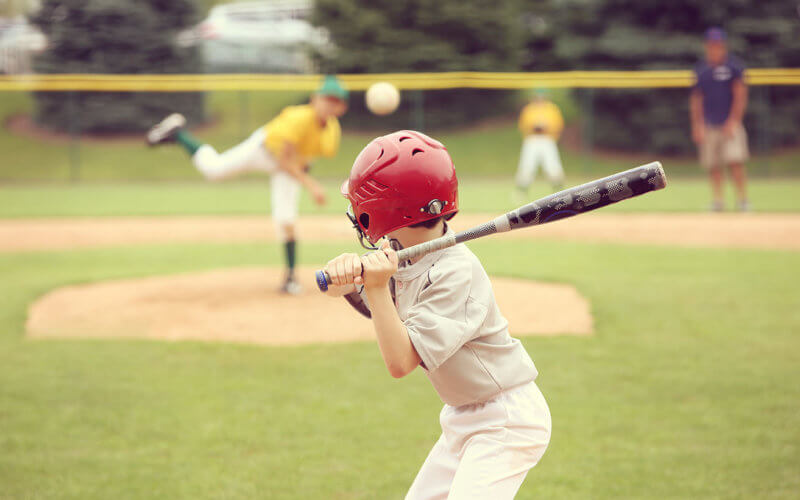
A national study of 11,235 youth ages 9 to 13 has found that participation in a team sport is associated with fewer mental health difficulties. However, youth who are exclusively involved in an individual sport — such as tennis or wrestling — may face greater mental health difficulties than those who do no sports at all.
The study was led by Matt Hoffmann, Cal State Fullerton assistant professor of kinesiology, and published in the open-access journal PLOS ONE on June 1.

“As mental health trends continue to change, it’s important to get up-to-date information about the link between organized sport participation and mental health,” said Hoffmann. “In this study, we analyzed one of the most comprehensive datasets on U.S. youth sport participation and mental health to date.”
Parents and guardians reported on several aspects of the children’s mental health by filling out a Child Behavior Checklist. The researchers looked for any associations between the mental health data and the kids’ sports habits, while also accounting for other factors that might impact mental health, such as household income and overall physical activity.
In line with the researchers’ expectations, the analysis showed that youth involved in team sports were less likely to have signs of anxiety, depression, withdrawal, social problems and attention problems. Hoffmann noted that the data was collected before the onset of the COVID-19 pandemic.
“We know that regular participation in youth sport declined over the pandemic. This was due to shutdowns in organized sport leagues and also within school sports,” he said. “At the same time, research has shown that children and adolescents suffered from a mental health standpoint during the pandemic, due to factors like isolation.
“So, I think these results tell us that it’s important to get our youth re-engaged in organized sports, particularly team sports, as the pandemic calms down.”
Hoffmann said the most surprising finding was that youth who strictly played individual sports were more likely to experience mental health difficulties than their counterparts who played no organized sports at all.
“Previous research showed that individual sport participation did not seem to have the same mental health benefits as team sport participation, but there wasn’t any evidence that individual sport participation could perhaps be associated with worse mental health compared to not playing sports,” he said.
“We can’t say anything with certainty, but we know that playing individual sports can involve a lot of pressure and stress,” Hoffmann explained. “These athletes don’t have teammates to share any losses or failures with, so they may shoulder a lot of the blame.
“I also think it’s important that we not jump to strong conclusions about the possible mental health problems that may stem from individual sport participation. Overall, I think more research is needed to figure out what may be happening with individual sports and their role in youth mental health.”
Ensuring young athletes who play individual sports receive support from parents, guardians and coaches is critical, Hoffman said, as is the need to increase mental health awareness.
“Adults need to be aware of the signs and symptoms of poor mental health in kids and look for ways to help. While feelings of sadness after a poor performance and some anxiety here and there is a normal part of youth sport, regular signs of possible mental health problems can be cause for concern,” he said. “Enhancing awareness and mental health literacy among all involved in youth sport, including kids themselves, is a good starting point.”
Hoffmann, whose research focuses on sport team dynamics, teaches such courses at Cal State Fullerton as “Psychology of Sport and Physical Activity, “Applied Sport Psychology,” “Statistics” and “Research Methods.”